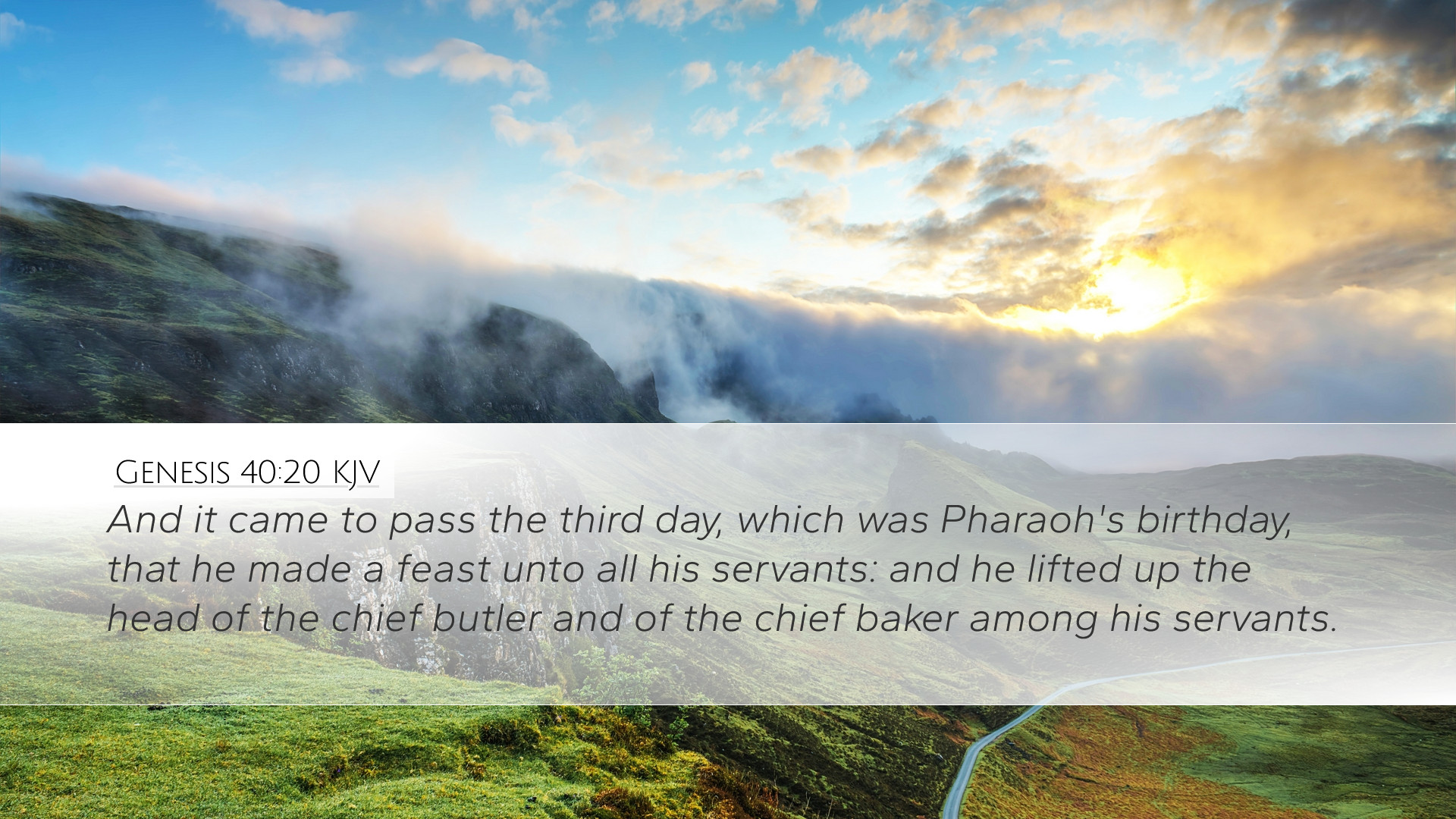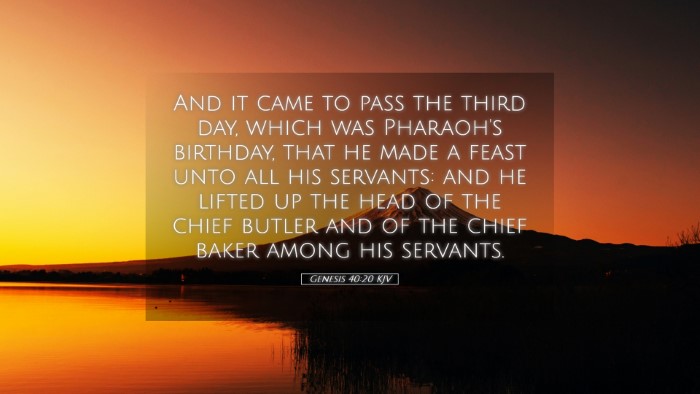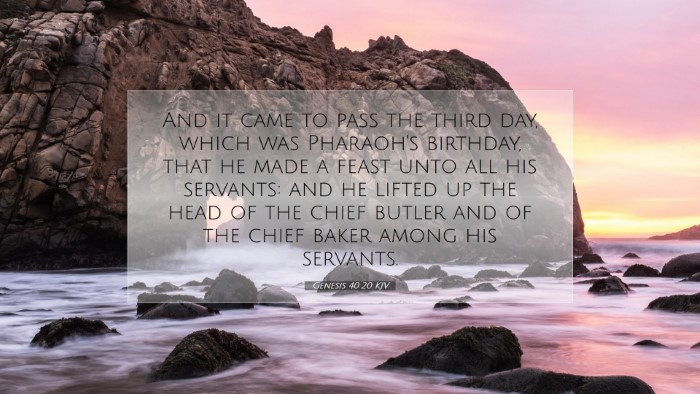Commentary on Genesis 40:20
Verse Context: Genesis 40:20 states: "And it came to pass the third day, which was Pharaoh's birthday, that he made a feast unto all his servants: and he lifted up the head of the chief butler and of the chief baker among his servants."
Historical Setting
This verse occurs within the narrative of Joseph’s imprisonment in Egypt. It represents a pivotal moment where the dreams of the chief butler and chief baker, who had been imprisoned alongside Joseph, come to fruition. The emphasis on Pharaoh’s birthday signifies a time of celebration and judgment, both within the narrative and for the characters involved.
Theological Insights
The birthday of Pharaoh serves as a backdrop that emphasizes divine timing in Joseph's life and ministry. The feasting and the lifting up of the butler and baker can be seen as echoing themes of elevation and humiliation, often woven throughout the biblical text.
Divine Providence
Matthew Henry highlights that this event showcases the unseen hand of God at work. The timing of the feast and the specific day chosen for the release of the butler and the fate of the baker illustrate how God orchestrates events according to His divine plan. Joseph, who remains in prison, is yet part of a greater narrative that will ultimately lead him to a position of power and influence within Egypt.
Symbolism of the Birthday
Albert Barnes discusses the significance of Pharaoh's birthday. In ancient cultures, birthdays were often regarded as auspicious occasions, and the events that transpired on such days were filled with prophetic meaning. The mention of Pharaoh’s birthday indicates a moment where divine justice and reward are manifest in a public and ceremonial context.
The Consequences of Dreams
This passage also invites reflection on the nature of dreams within the biblical narrative. According to Adam Clarke, dreams serve as prophetic instruments whereby God communicates His intentions. The fulfillment of the butler’s dream on the specific day of Pharaoh’s birthday illustrates the theme of hope, restoration, and divine sovereignty that permeates Joseph's story.
Character Analysis
The characters of the butler and baker are central to understanding the implications of this verse. Their respective fates, celebrated in a time of feasting, symbolize the broader themes of mercy, justice, and accountability for one's actions.
The Chief Butler
The chief butler's release from prison after the favorable interpretation of his dream illustrates a transition from despair to hope. Henry notes that this experience is representative of how God can elevate individuals, restoring them to their former roles. It speaks to the grace of divine intervention, emphasizing the transformation that God is capable of in a believer's life.
The Chief Baker
In contrast, the fate of the chief baker serves as a sobering reminder of judgment. His execution symbolizes the perennial biblical principle that one will reap what they sow. Clarke remarks that the baker's demise serves as a warning to others regarding the consequences of dishonorable actions and decisions made within the palace.
Lessons for Believers
This narrative holds significant lessons for contemporary believers:
- God's Timing: The events outlined in Genesis 40:20 remind us of the importance of divine timing. Just as the butler's restoration occurred at the right moment, believers can trust that God works according to His perfect timing.
- Restoration and Judgment: The contrasting fates of the butler and baker illustrate God's mercy and justice. Believers are encouraged to align their actions with God's will to experience His favor.
- Hope in Adversity: Even in the bleakest of circumstances, such as Joseph's imprisonment, God was preparing him for greater things. This serves as encouragement for believers facing trials today.
Conclusion
Genesis 40:20 is rich in theological significance and practical insights. The interplay of human actions, divine providence, and the symbolic nature of Pharaoh’s birthday provide a compelling narrative that illustrates God's sovereign hand at work. For pastors, students, and theologians, this verse and its context reveal profound truths about the nature of dreams, the importance of divine timing, and the assurance that God's plans ultimately prevail. Each character's journey reflects broader biblical themes of hope, transformation, and the accountability that accompanies one's choices.


